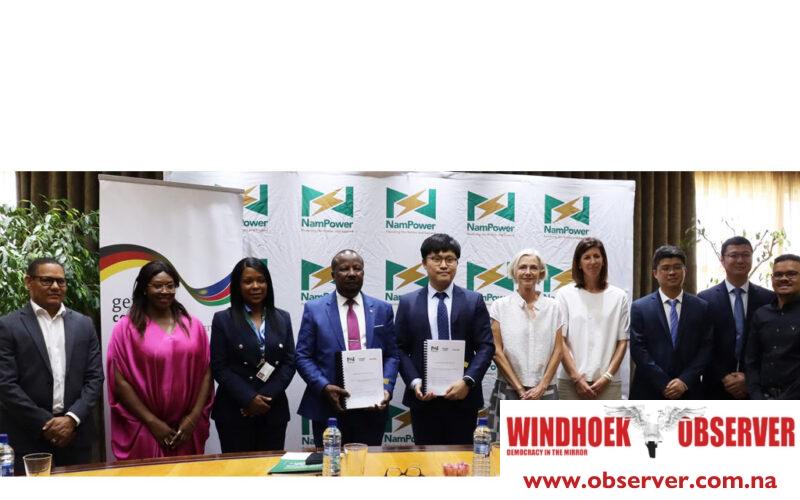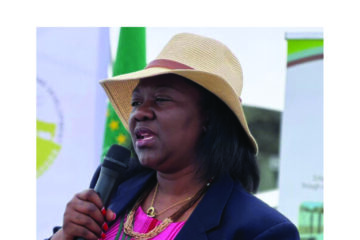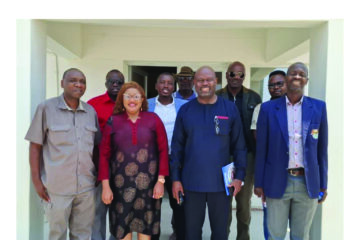Martin Endjala
The Namibia Power Corporation (NamPower) received a significant grant of N$400 million from the German Development Bank to embark on the construction of Namibia’s inaugural utility-scale Battery Storage Energy System (BESS).
The grant was formalized on 7 December 2021, when the KfW Development Bank, in collaboration with the National Planning Commission and NamPower, signed an agreement for the grant to facilitate the implementation of the first utility-scale BESS not only in Namibia but also in the broader Southern African region.
The funds provided by Germany are specifically allocated for the construction of a 54 MW / 54 MWh BESS Plant, strategically located at the Omburu Substation, approximately 12 kilometres southeast of Omaruru in the Erongo Region.
Kahenge Haulofu, NamPower’s Managing Director, highlighted that the BESS will play a pivotal role in stabilizing Namibia’s electricity grid.
It will effectively manage short and medium-term power fluctuations resulting from Renewable Energy (RE) generation, ensuring a stable power supply in the long term and creating favourable conditions for future growth and economic development.
Haulofu underlined the positive impact of the BESS on the investment climate for Independent Power Producers (IPPs) and its contribution to generating new income and employment opportunities.
Furthermore, it will assist in reducing the overall cost of energy for customers.
He mentioned that NamPower is committed to contributing approximately N$100 million to ensure full project coverage, with the total project cost estimated at around N$500 million.
The Omburu BESS will allow NamPower to efficiently manage energy demand and supply by charging the BESS during periods of low electricity prices (off-peak times) and discharging it during periods of high electricity prices (peak times).
This strategy is expected to yield significant economic benefits by reducing dependence on expensive peaking plants and imports.
Ulrike Metzger, Head of German Development Cooperation, emphasized that the BESS Project aligns with Namibia’s energy policies, including achieving 80 percent of energy requirements from local sources, aiming for 70 percent renewable energy by 2030, and contributing to nationally determined climate targets.
Beatrice Lucke, Country Director of KfW Development Bank in Namibia, highlighted that the BESS would enable the storage of electricity from renewable energy generation and electricity imports from the Southern African Power Pool (SAPP).
This stored energy can then be utilized to supply customers during peak times, reducing reliance on fossil energy sources such as the ageing local Van Eck coal-fired power plant.
Construction is projected to span 18 months, with the plant expected to become operational by mid-2025.
Wilhencia Uiras, Executive Director of the National Planning Commission, reiterated Namibia’s commitment to embracing innovative and eco-friendly solutions in the face of a rapidly evolving world.
She said that the BESS project reflects the nation’s dedication to modernizing its energy infrastructure and fulfilling its responsibility toward future generations.




